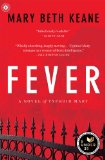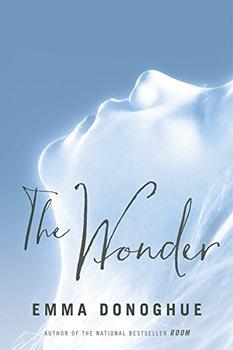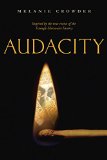Summary | Excerpt | Reading Guide | Reviews | Beyond the book | Read-Alikes | Genres & Themes | Author Bio

Mary Beth Keane's Fever is a hit with BookBrowse readers. 22 out of 23 reviewers gave it 4 or 5 stars. Here is what they say about the book that puts a real face to the name Typhoid Mary:
Heart-wrenching and dark but I was unable to put the book down. Amidst the churning and changing of bustling New York City, Mary is trying to find understanding and meaning and some element of peace in a world where she unwittingly has become an angel of death (Paul R). This novel is the story of a two-fold love: Mary's love of cooking and of the ne'er-do-well Alfred, her long-time companion. This fictionalized account of Mary depicts her as a strong immigrant woman who battled for a better life for herself (Kathleen S). The book and the character, Mary, are both unforgettable (Jean N).
Keane doesn't hesitate to make Mary the contradictory and wonderfully complex character that she truly was:
Keane has given the reader a real character we can like or dislike, but cannot ignore. In the end I still couldn't make up my mind whether to give Mary a loud boo or a rousing cheer. Definitely a good read (Joan C). You alternately like, hate and feel sorry for Mary who, although a smart woman, cannot accept the fact that she is a healthy carrier of typhoid. The fact that she cooks for a living makes for a dangerous situation. Rich in characters and in setting, this book is a winner (Rebecca J). My heart empathized with Mary Mallon's fear and anger when she was pursued and quarantined as a public health danger, but my head told me that Dr. Soper had to do all he could to avoid widespread outbreaks of typhoid fever (Helen S).
Fever is historical fiction at its very best:
Wow! Loved, loved, loved this book. It usually takes me a good 100 pages to get into a book... not so with Fever. After reading the first five pages I was hooked (Teresa R). An unforgettable story of an Irish immigrant who came to New York at the beginning of the twentieth century. You will learn how the poor coped with urban life, and how the seriously ill were treated by the Department of Health, which was trying to protect the health of the public. As historical fiction, Fever will not disappoint (Annette S). We've all heard about Typhoid Mary, but who was she? Not only did I learn about this tremendous woman, Mary Mallone, I also was put right into the streets and tenements of the early 1900s. Get this book – it is an absorbing read. I gobbled the words down, typhoid be darned! (Darcy C) Fever captured my interest immediately and held on to it throughout the novel. Keane has melded the facts of that frightening time with the humanity of her characters and the quickly changing ethics of the early twentieth century (Becky M). I chose to read Fever because I knew nothing about Typhoid Mary except her name, and wondered why her memory had lasted so long. And now I know. Beyond that, this book gives a vivid and informative portrayal about that period in our history. For instance did you know that there was a small island in New York Harbor called North Brother to which they sent all TB victims? That's where Mary was sent for years. All in all, a well-written and gripping narrative which brings to life a little-known period of our history (Tilli F).
Readers can't help but put themselves in Mary's difficult position:
Unexpectedly I came to like Mary Mallone. Mary, like so many of us, long denied truths that were evident to most others. She made me stop and take a look at my life, wondering what I might be denying about myself (Donna T). I felt that Mary Beth Keane did an excellent job weaving fact and fiction to profile this infamous woman. I found it just as interesting to read about life in New York City in the early 1900s. My great-grandparents were also immigrants in New York City during this same time period and I have a greater appreciation of what their life might have been like (Elise B). I can't stop thinking about Fever. I felt so sorry for Mary. I realize that these scientists were trying to protect the community from infection, but I put myself in her position. She was healthy young woman; and the media made her out to be nothing more than a disease by labeling her Typhoid Mary. I loved the book, Keane has written a fascinating and also heartbreaking human story (Mary S).
Finally, Fever is a strong catalyst for fascinating conversation and lively debate:
I wonder how most readers will feel about what was done to Mary. This book would definitely be a valuable tool in schools discussing medical ethics and the rights of patients and the public (Peggy K). Fever is told from Mary's point of view and you get a real sense of who she was and how being labeled a typhoid carrier affected her. Mary's actions can be interpreted many ways making this an excellent book for book clubs (Mary M). I would recommend this book to anyone who enjoys historical fiction and to book clubs that like discussing moral and ethical issues (Donna T).
![]() This review was originally published in The BookBrowse Review in May 2013, and has been updated for the
March 2014 edition.
Click here to go to this issue.
This review was originally published in The BookBrowse Review in May 2013, and has been updated for the
March 2014 edition.
Click here to go to this issue.

If you liked Fever, try these:

by Emma Donoghue
Published 2017
In Emma Donoghue's latest masterpiece, an English nurse brought to a small Irish village to observe what appears to be a miracle - a girl said to have survived without food for months - soon finds herself fighting to save the child's life.

by Melanie Crowder
Published 2016
The inspiring story of Clara Lemlich, whose fight for equal rights led to the largest strike by women in American history
I write to add to the beauty that now belongs to me
Click Here to find out who said this, as well as discovering other famous literary quotes!
Your guide toexceptional books
BookBrowse seeks out and recommends the best in contemporary fiction and nonfiction—books that not only engage and entertain but also deepen our understanding of ourselves and the world around us.